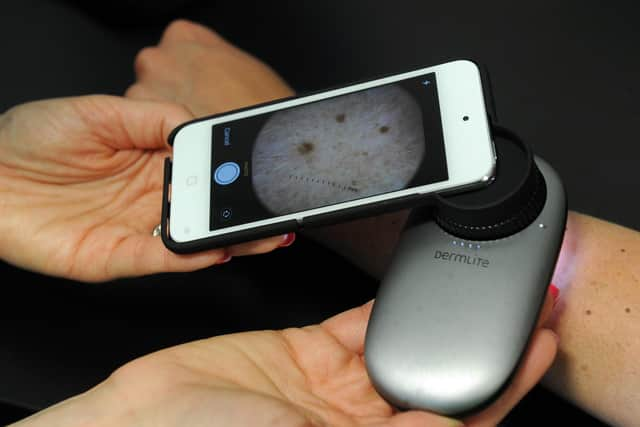Skin Cancer Awareness Month: The seven warning signs to look out for and when to seek help from the professionals
and live on Freeview channel 276
In the run up to Skin Cancer Awareness Month in May, we take a look at the seven warning signs to look out for, how to reduce your chance of getting skin cancer in the first place, and when the time is right to seek help from the professionals.
Skin cancer is one of the most common types of cancer worldwide and includes non-melanoma and melanoma cancers.
Advertisement
Hide AdAdvertisement
Hide AdThe good news is that non-melanoma cancer can often be easily treated if it is detected early.


Melanoma skin cancer - which often appears as a change in the shape, colour, size or feel of an existing mole - is the most dangerous type because it’s much more likely to spread to other parts of the body if not found and treated early.
The seven main warning signs of skin cancer are:
New or changing spots: Pay attention to spots on your skin that are new or have undergone noticeable changes, especially if they aren't brown.
Skin changes in odd places: Skin changes occurring in unusual or unexpected areas may indicate skin cancer. Some examples are under fingernails, soles of the feet, palms, eyelids, scalp, and inside the ear, tongue and eyes.
Advertisement
Hide AdAdvertisement
Hide AdBleeding lesions: Any lesion that bleeds without apparent cause warrants investigation.
Painful lesions: Lesions that are painful to the touch should be examined by a healthcare professional.
Itchy spots: Persistent itching in a particular spot on the skin could be a sign of skin cancer.
Crater-like appearance: Keep an eye out for spots on the skin that resemble a crater.
Advertisement
Hide AdAdvertisement
Hide AdRapid growth: If a spot on your skin is rapidly increasing in size, it's important to seek medical advice promptly.
As with so many other aspects of our health, prevention is better than a cure.
It’s important to recognise that ultraviolet (UV) rays are active all year round, not just in the summer months. Reducing your exposure to UV rays can help keep your skin healthy and lower your chances of getting skin cancer.
To protect your skin, stay in the shade, especially between 11am and 3pm, and wear clothing that covers your arms and legs. Wearing a wide brim hat and wraparound sunglasses can also block both UVA and UVB rays.
Advertisement
Hide AdAdvertisement
Hide AdIt’s advisable to apply sun cream with an SPF of 15 or higher right throughout the year and avoid artificial UV sources: the dreaded sunbeds and sunlamps!
Early detection and timely intervention are key to the successful treatment of skin cancer. If you notice any of the seven warning signs or any other changes to your skin, it’s better to be safe than sorry.
If you are an NHS resident living in Wakefield, simply contact your GP to refer you for assessment and treatment by an experienced dermatologist at Novus Health.